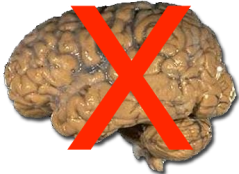 Two separate events Wednesday put into sharp focus what is happening to the young Americans the nation has been sending off to war for more than a decade:
Two separate events Wednesday put into sharp focus what is happening to the young Americans the nation has been sending off to war for more than a decade:
— At 2 p.m., scientists at Boston University and the Boston VA announced they have found chronic traumatic encephalopathy – brain damage like that suffered by boxers and football players – in autopsies of the brains of four dead U.S. troops who had suffered IED blast injuries. Up to 500,000 U.S. troops suffered such wounds in Afghanistan and Iraq and eventually could suffer from “psychiatric symptoms and long-term cognitive disability involving memory and learning deficits” as their brain cells die prematurely. “Surprisingly,” the Boston scientists said, evidence of long-term learning and memory problems can be seen within two weeks of a blast.
— Then, just before 7 p.m., the Pentagon issued a statement saying the Army was launching “a comprehensive, Army-wide review of soldier behavioral health diagnoses and evaluations” triggered by recent reversals in PTSD diagnoses made by medical personnel at Fort Lewis, Washington.
“Just as our behavioral health professionals are committed to providing the best possible care,” Army Secretary John McHugh said, “we, too, must ensure that our processes and procedures are thorough, fair and conducted in accordance with appropriate, consistent medical standards.”
The two announcements are not connected, other than in one’s mind. Whether the mental ills triggered by the IED blasts of the post-9/11 wars were allowed to happen because of hubris or ignorance, the bottom line is the same: they will be with us for generations. It is becoming increasingly obvious that the world’s greatest war machine, like a drunken father, is guilty of the military equivalent of shaken-baby syndrome.


